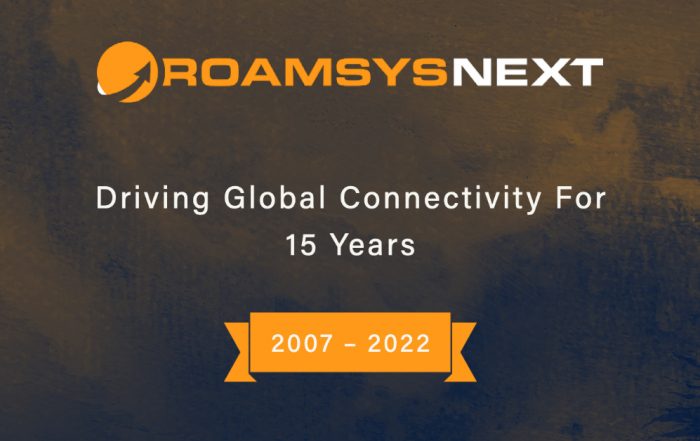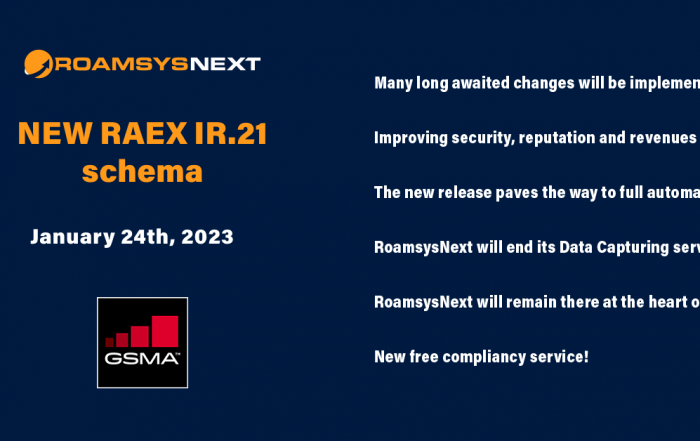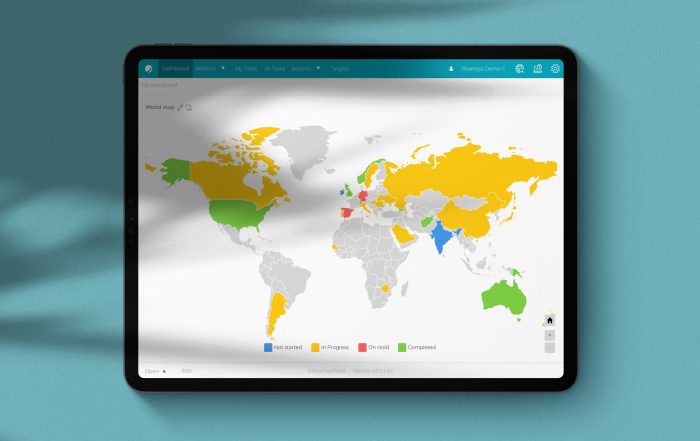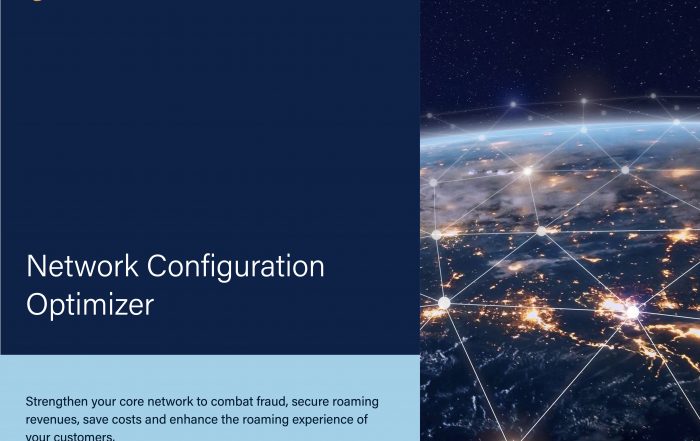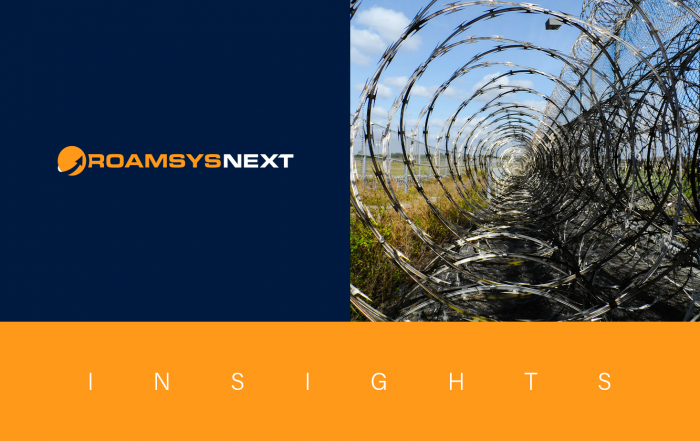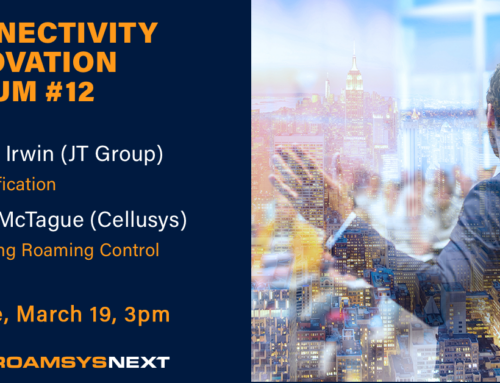
Gabriele Lieser
CUSTOMER SUCCESS MANAGER
Summary
Word has been spread by the media, reports and industry networks that mobile networks are notoriously insecure, under attack or unprotected. Well, we all know that there is a constant need for action in the nonstop adjustment to the ever-evolving threat landscape. But how bad is it really?
Most attacks are developed to target the providers’ core network and signaling security gaps in SS7 and Diameter networks are well documented. Since subscribers have very limited possibilities to ensure their own security, most of the security work has to be done at the provider’s level. According to an ENISA report, only few MNOs have started to use sophisticated, stateful firewalls to secure their networks (roughly 28%, a rather low percentage). Time for action, isn’t it? In order to narrow down the search, there are some general considerations on how to choose a signaling firewall wisely.
Smartphone users can be targeted in a variety of ways by the technologies offered through their device, such as identity theft, financial fraud, integration of the device into a botnet, or even remote monitoring. While everyone is looking forward to 5G, maintaining legacy networks even so requires complex security measures to help ensure their future viability. With a robust signaling firewall, MNOs have a comprehensive insurance policy to prevent known threats and detect unknown threats.

In RoamsysNext Insights our experts share their views on extensive industry topics and possible solutions we can offer.
At the beginning of the search for a suitable signaling firewall, one should start with those that comply with the GSM Association’s (GSMA) guidelines. By doing so, an important set of requirements to adequately protect a network has already been met. The GSMA guidelines were written by leading security experts in a collective effort of mobile operators‘ experts and telecommunications security providers in the GSMA Fraud and Security Group (FASG). The guidelines GSMA FS.11, FS.19 and FS.20 for SS7, Diameter and GTP-C firewall security are incredibly important and solid standards for evaluating signaling firewall options enabling MNOs to make an informed decision.
Threat landscape is constantly evolving
Implementing a signaling firewall solution that follows GSMA recommendations is the best possible start. However, the threat landscape is constantly evolving and requires additional actions to be taken, especially since it is likely that the attackers will also have access to the GSMA documents and will understand the protections the operator will be putting in place. The key to ensuring a mobile network stays secure is a strong security team working with the most up-to-date intelligence regarding attacks and a flexible set of tools that allow quick actions to filter bad traffic and provide monitoring and alerting of suspicious activity.
Attacks by malformed packets have established a new and growing class of attacks, for example. Malformed packet attacks in SS7 and Diameter signaling networks can take full control of network elements, which can result in user tracking, remote interception, constant denial of service, traffic changes, and even complete network break downs.

SS7 and Diameter cause most vulnerabilities
It only makes sense to invest in a signaling firewall if it protects the network from disaster to the max and secures revenue streams. To maximize the impact of this significant investment, the main concern should be laid on SS7, which is the largest potential target surface, followed by Diameter. To ensure the reliability of the firewall, MNOs should make sure they opt for a telco grade product. Vendors should be able to offer the five nines indicator as standard, as well as high availability and redundancy, where the vendor hardware is always backed up.
Strong partnerships pay off
Collaboration is so valuable, and no one should have to reinvent the wheel over and over again. Since there are not yet that many mobile network operators who have implemented a complete signaling firewall solution, independent reports can be helpful in decision-making. The Roaming Consulting Company (ROCCO) regularly collects feedback from mobile network operators on industry tools. An evaluation of signaling firewall providers has been conducted covering a wide range of KPIs such as performance, value and leadership. It provides an overview on how to find reliable partners and support the own evaluation process.
Other key indicators are the vendor’s intelligence and security support capabilities. As operators seek to build competence in SS7, Diameter and other signaling protection, leveraging the expertise of the vendor on an ongoing basis is very important. As we know, the fight against fraud consists of a constant tug-of-war between MNOs and malicious actors, who use the latest technologies to find ways to overcome the barriers. Therefore, the new signaling firewall solution provider should always be one step ahead of the times and provide updates at the earliest possible time to identify and eliminate the latest threat vectors. The proactive search for vulnerabilities protects the customer from future threats and qualifies the provider for a good and long-term cooperation.

Make proactive choices
For more than 12 years, RoamsysNext has been specializing in the software development and project management as the GSMA’s exclusive provider of RAEX solutions. We also offer the only GSMA-compliant hub solution on the market and provide our customers with superior service and competitive pricing. With our Wholesale Roaming Manager, we help MNOs converge roaming partner information and relationships in a precise and secure way with an all-in-one solution from test SIM cards, over tariff, document and contact management.
No, it is not a signaling firewall, but with the help of the Network Configuration Optimizer MNOs can already get all partner network technical data updates in vendor specific formats to automate firewall update processes. In order to protect all signaling interfaces it is essential to carry out further audits. MNOs thus ensure that the correct configurations are implemented in each network node. Regular firewall configuration audits can easily be run with the audit feature to strengthen the core network by spotting missing and incorrect configurations and vulnerabilities.
However, a very important part of implementing security technologies is also to find a good balance between security and usability. With the help of the latest technologies and together with the GSMA, we are working on more efficient solutions. Consequently, we are more and more keeping an eye on upgrading security aspects. Stay tuned for new developments from the house of RoamsysNext.
Gabriele Lieser joined RoamsysNext in 2020 as Customer Success Manager to strengthen the bonds with our increasing number of customers and to support the marketing team. Gabriele has a strong background in corporate sales. She studied at the Universities of Trier (Germany) and Manitoba (Canada) and is incorporated in the RoamsysNext Client Service team.
“The team is a crucial asset”
It has been an exciting year for RoamsysNext. And as 2023 is coming to an end, we took the opportunity to talk with CEO Michael Grasmück about the past year, the growing team that becomes more and more international, and the comeback of an industry institution.
15 years of RoamsysNext – Driving Global Connectivity
RoamsysNext turns 15, so we talked with CEO Michael Grasmück about the anniversary, the early years, the move to Luxembourg and the future within the fast-developing roaming industry.
The new age of the IR.21 – Be ready for the full automation!
The new RAEX IR.21 schema will be released early 2023 with great changes coming that allow us to revolutionize the way we work with the IR.21 data.
Reporting at a glance: The RoamsysNext Dashboards
The RoamsysNext tools offer many reporting functionalities of which the dasboards play an important role. Learn more about using them in practice to identify bottlenecks, visualize your team's performance and bring a smile to your management's faces.
End-2-End-Automation with Network Configuration Optimizer
The RoamsysNext Network Configuration Optimizer is the perfect solution to make the shift from manual processing to more and more automated processing, with the option to move to full automation. Let's see how it works.
From Roamsys to RoamsysNext
Sixteen months ago, Roamsys relaunched and became RoamsysNext. Time to look back to a year we never expected to happen.
How to Stay Secure
What can MNOs do to stand up to the ever-growing tide of telecom fraud and protect their assets? Stay alert, use great tools, collaborate with other market players, and take the fight to the fraudsters.
Telecom Fraud Hurts
Telecom fraud is a rapidly growing area that has serious effects on national critical infrastructure (civil, healthcare, energy, agriculture...) and wider industrial processes.
The GSMA MISP – How Does it Help?
Malware information sharing and threat intelligence sharing has unbeatable benefits that make any caveats and challenges look small in comparison.
The Experts behind RoamsysNext Insights
RoamsysNext Insights has a growing fan base due to its substantial reports. With a wide variety of great information and exciting insights, they inspire beginners as well as professionals.
How to Treat 2G and 3G Closures without Becoming an Archivist?
As we are entering the era of 5G, legacy networks are in a state of flux and lose significance. This blog is about how the sunsetting of 2G and 3G networks will impact mobile communication.
How to Choose a Signaling Firewall Wisely
In times of global turbulences and increasing fraud attacks the decision for a sophisticated signaling firewall becomes more and more a priority. Some general considerations help to narrow down the choice.
Identity Fraud in Telecom
Identity fraud robs people of their virtual existence; it costs time, money and nerves. But there are countermeasures that help.
How to Tackle the Challenges in Combating Telecom Fraud
Telecom fraud can have dire effects on critical infrastructure and always causes painful loss of revenue. See how the industry's joint efforts tackle the challenges in combating telecom fraud.
Face the Breach: Rehearse an Emergency Before it Happens
In case of a breach, most companies are poorly prepared to take quick action. Have a look at some ideas on how to make the best of a difficult situation and save valuable time.
Working from Home during a Global Pandemic
Due to the broad introduction of remote working, businesses need to rethink their current cyber security measures and consider how they need to be adapted or further developed.
The Future of Roaming Trainings – An interview with Milja Hofman, CEO Roamingwise
Roamingwise is a well-known provider of roaming trainings, seminars and consultancy in a variety of international roaming topics. In our interview, CEO Milja Hofman reveals how she prepares professionals to drive the roaming world.
Historical Fraud Incidents and Lessons to be learned
In the course of history, no era is free from the practice of deception for personal benefit. Let’s have a look at what we can learn from historic fraud cases from ancient Greece to modern times.
Two-Factor Authentication rules!
For some time now, we have introduced 2FA and have contributed our share to provide more secure access to our tools. Norbert Becker, Head of Software Development, picks up the thread and provides engaging insights into his area of responsibility.
Introducing: The RoamsysNext Network Configuration Optimizer
Learn how the RoamsysNext Network Configuration Optimizer enables MNOs to switch safely to full automation and growing roaming revenues by providing effective and secure data management of all roaming related business information.
Introducing: The RoamsysNext Wholesale Roaming Manager
The RoamsysNext Wholesale Roaming Manager provides powerful collaboration and reporting tools for all roaming partner relationships by converging everything from service openings to the user’s roaming footprint, test SIM cards and tariffs, document and contact management.
Don’t fear the breach – three more ways to avoid configuration errors
Three ways to bliss: take bold measures to automate processes as much as you can, check your firewall’s security logs regularly and enforce centralized authentication mechanisms.
We’re in this together
In the second part of our interview with Alexandre De Oliveira, POST Luxembourg Cyberforce, he highlights major pain points in fraud detection and stresses the importance of global information sharing via the GSMA T-ISAC initiative.
Mastering today’s Fraud Landscape
Learn how Alexandre De Oliveira’s team at POST Luxembourg Cyberforce is mastering today’s fraud landscape with penetration tests, security assessments, the Telecom Intrusion Detection System (TIDS) and the Telecom Security Scanner (TSS).
How to avoid configuration errors
Hardening the network is a good way to get configuration errors under control. Introducing smart firewall rules and consistently updating these rules can be very time-consuming, but it’s a crucial measure to be taken.
From customer request to feature
In our newest “RoamsysNext Insights”, David Houstek and Adrian von Wendt elaborate on our customer focused production processes.
Making a Stand against Fraud
In an insightful interview, our CTO, Hendrik Hoehndorf, speaks about further GSMA initiatives on fraud detection and prevention such as the MISP (Malware Information Sharing Platform) and T-ISAC (Telecommunication Information Sharing and Analysis Centre).
Cyber security and fraud prevention – the GSMA approach
How does the GSMA approach cyber security, fraud detection and prevention? Look at the incredible useful tools and informations they provide with the Fraud and Security Group (FASG) and documents on best practice countermeasures.
How insecure GTP makes LTE and 5G networks vulnerable
GTP will still have an impact on 5G. Our tools can help to identify dubious requests faster, reduce reaction times and block incidents in a fraction of time.
How bad can it get? Signaling attacks strike the heart of each MNO
This blog is about how correct data is key to ensuring that mobile communication is of trustworthy origin, especially in case of signaling attacks. Notably, the roaming industry has to take action for data verification.
Grey Routes, Spam, Smish – funny words but nothing funny about SMS Fraud
SMS enjoys the reputation of being a safe channel for communication. But as any system, it is prone to abuse. We show you what needs to be done.
4 more Types of Telecom Voice Fraud MNOs are vulnerable to
Voice fraud is known as one of the top inter-carrier fraud cases, and in order to expose them, time and reliable data is crucial. This article shows that prevention is key to make sure that legitimate traffic is not obstructed.
Three Types of Telecom Voice Fraud that can destroy businesses
This issue shines a light on the variety of security breaches and fraud incidents: A cabinet of horrors.
Problems with telecom fraud? How big the issue really is. And how we can help
Fraud and security issues cause considerable problems within mobile network operators. But we are here to help.
Let’s talk about data quality
Most fraud and security issues are caused by misconfigured network nodes. This article shows, how RoamsysNext treats this problem on their quest for data quality.

